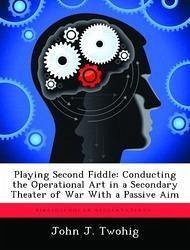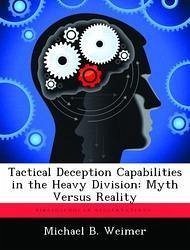
Anticipating the Gap: The Reality Between Aim and the Object
Versandkostenfrei!
Versandfertig in über 4 Wochen
54,99 €
inkl. MwSt.

PAYBACK Punkte
27 °P sammeln!
The ownership of vast quantities of military power and the ability to project that power globally does not ensure the achievement of the 'ends' desired from a war. Since 1945, the United States and her Western allies increasingly fail to realize a 'utility of force' that achieves the political purposes of conflict. How can the massive outlays for a modern military not produce adequate returns on investment? The billions spent, the energy expended, the lives lost produce not victory but frustration. These indecisive results are peculiar because Western military power, compared to its enemies' s...
The ownership of vast quantities of military power and the ability to project that power globally does not ensure the achievement of the 'ends' desired from a war. Since 1945, the United States and her Western allies increasingly fail to realize a 'utility of force' that achieves the political purposes of conflict. How can the massive outlays for a modern military not produce adequate returns on investment? The billions spent, the energy expended, the lives lost produce not victory but frustration. These indecisive results are peculiar because Western military power, compared to its enemies' strength, generally results in massive overmatch. Initial phases of a campaign usually produce stunning military victories. Unfortunately, these military victories are not producing favorable political settlements. Western citizens and their political and military leadership ask, "What's the story here?" Why cannot the West, with its immense military power, win a war? Why does this paradoxical problem between ownership of immense force and force utility currently confront Western nations? Western military traditions place great emphasis on decisive battles and campaigns and unfortunately assume victorious battle will instantly gain the political goal. The West designs battles and campaigns in which Clausewitzian 'absolute war' is the ideal and assumes by corollary absolute victory will follow. The conceptual 'absolute war' is just that, conceptual and unachievable. Limited war is the reality. Within limited war a gap between the 'aim' and 'object' must exist. Prior to 1945, the extension of battlefield violence upon a recalcitrant enemy society was the normal way to cross the gap. Since 1945, humanitarian and moral considerations in the conduct of war have gained an ever-higher level of acceptance in the West. When the 'absolute victory' expectation runs smack into an obstinate enemy population and humane limitations, a near insurmountable dilemma will exist for the West.














